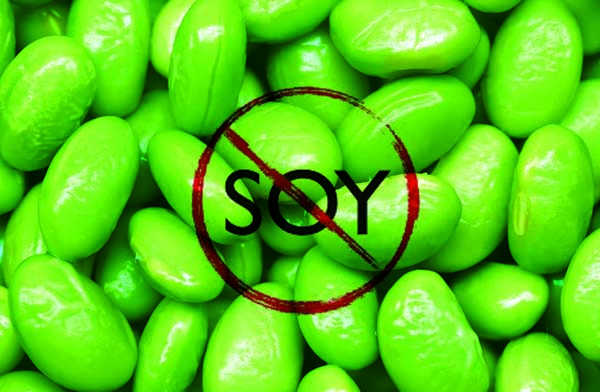Who Said That Soy Is Good For Us?
Have you heard of phytic acid? If you had, you probably wouldn’t have the same perception that soy is supposedly good for our diets. Soy has high levels of this kind of acid, which is not neutralized by our traditional Western methods of cooking. This acid inhibits absorption of calcium, magnesium, copper, iron and zinc and has been known to cause growth problems in children. Soy actually increases the body’s requirement for vitamin D and vitamin B12, far from being beneficial in the supply of these essentials. Monosodium glutamate or MSG, which most of us have heard of and associate with toxicity, can be formed during the processing of soy foods. Would you believe that there are high levels of aluminum inside as well and you can just imagine what that does to our nervous system!
Phyto estrogens, common in soy, are a disaster waiting to happen when absorbed into the human body. Estrogen is linked with breast cancer, infertility and endometriosis. Soy is also known to be goitrogenic, which essentially means that it will suppress your thyroid regulating ability, which can lead to fatigue, stress and weight gain. Soy will also affect your ability to digest protein, as it is rife with trypsin inhibitors. Get ready for stomach cramps and diarrhea, potential pancreatic problems, as well.
Soy must be fermented in order for us to consume it with any degree of safety. The Asians include soy in the diet, but in relatively small amounts. Unfermented soy is simply not considered by them and they usually only use it as a condiment and not as an essential food. Generations of healthy eating habits have also taught the Chinese and Japanese to eat foods that are high in nutrients and minerals, which counter balance and can counteract the effects of the fermented soy on organs like the thyroid.
Isolated soy protein, is a byproduct generated when a soy bean is turned into oil. It is then included in popular food products such as burgers, milkshakes, ice cream and milk substitutes. Sometimes they are touted as healthier alternatives, for example in the case of a burger, because you avoid all that “red meat” and fats. However, the soy products must taste acceptable to us, or we wouldn’t buy them, so they are loaded with additives, such as MSG and flavorings, in order to make them palatable to our taste buds.
Don’t be tempted to opt for tofu, often linked to soy products, as this is also a nontraditional product that only originated within the Asian markets as populations expanded and demand for the widespread availability of cheap foods exploded.
From allergies to infertility, depression to weight gain, to alcoholism to development problems in children, the dangers of soy are evident, yet are suppressed within our food education system. It’s high time that the curtain was raised on this poor quality food alternative. Let us really understand why the Asian people only use soy in very sparing quantities and disband the myth once and for all that this is a healthy option for us.
©2013 | Shantih Coro
Shantih’s Bio




Leave a Reply
Want to join the discussion?Feel free to contribute!